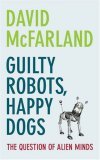
Russell Hurlburt has created a method called “Descriptive Experience Sampling” (DES) that he believes overcomes some of the problems associated with introspection. Eric Schwitzgebel is skeptical about the degree to which inner experience can be accurately described. Describing Inner Experience?: Proponent Meets Skeptic (MIT Press, 2007) shows the DES technique in action through the participation of a subject called “Melanie,” interleaved with a dialogue between “proponent” and “skeptic.”
Perhaps a reason underlying their dispute came out in this comment by Eric, late in the book (p. 296):
Russ and I [Eric] hope for different things from these interviews, not equally easy to achieve. Russ wants a mostly accurate view of central features of Melanie’s experience, and he thinks we’ve attained that. I want insight into some of the big structural and theoretical questions about consciousness, and I’m not sure we’ve attained that.
The questions Schwitzgebel was interested in included “whether Melanie’s experience is rich or thin, whether her emotional experience is exhausted by bodily sensations, how broad the range of clarity is in her visual experience.”
This difference could explain, for example, why Hurlburt was less worried about possible confabulation than Schwitzgebel.
‘Bracketing of presuppositions’ is key to the method and requires some training for both interviewer and subject. The issue of observer effects and interviewer effects wasn’t raised, though it seems like that could also be a concern.
Inner experience is the medium we’re constantly immersed in, but it’s surprisingly elusive when one tries to stop it “mid-stream” to take a sample.
Theory aside, I thought the samples and descriptions of inner experience were fascinating in themselves, such as the discussion of different ways of reading (p. 101 – images, inner speech or just reading), or the description of “Fran” (section 2.3.2.1) who had no figure-ground differentiation and whose “inner experience was frequently populated by multiple (as many as five or ten) visual images, all occurring simultaneously and in the same ‘visual space,'” some lasting for “hours or days, nonstop, uninterrupted.” It would be interesting and valuable to get some idea of the range of inner experience, as Hurlburt recommends psychological science should “develop a taste for specific moments.” (p. 260)
Metapsychology Online Reviews also recently posted a review of this book.
MIT Press’s Companion site for the book has transcripts and audio files of the interviews with “Melanie” plus some full text from the book.
For more on Descriptive Experience Sampling – Exploring Inner Experience by Russell T. Hurlburt and Christopher L. Heavey can be viewed online at publisher John Benjamins (after installation of free ebrary reader).






